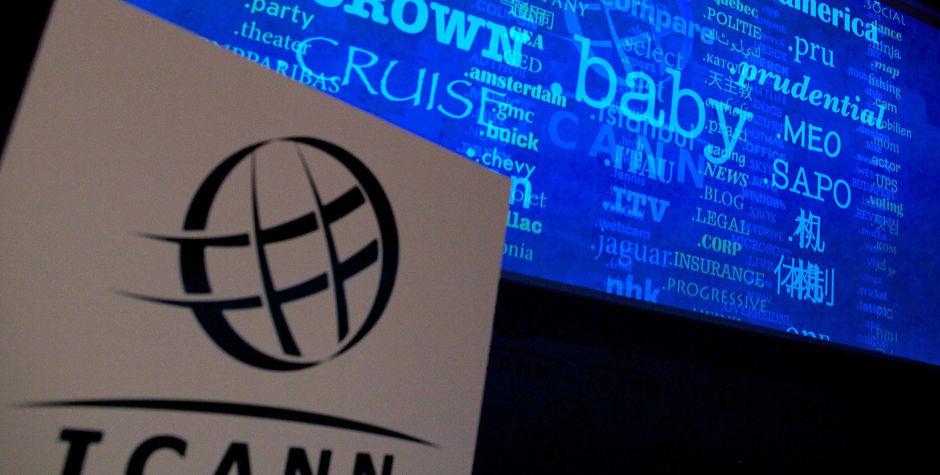Dangerous Transfer: The President’s ICANN Internet Problem
Imagine this dramatic scenario: the White House pushes for the United States to abandon its historic role as protector of the Internet, transferring the last vestige of that authority over to a private organization populated by international tech gurus. But the gurus also hold seven smartcards that could either restart the internal security framework of the entire Internet in the event of a catastrophe; or else they could disable it. America holds its breath to see how they will rule the most important communications platform in the history of the planet.
All drama aside, the facts in that scenario are true. The Administration has an ill-conceived plan to give up Internet oversight, and that is no fiction. Since the beginning of the year, President Obama has urged that our Commerce Department relinquish its control over the last remaining parcel of U.S. authority; namely, supervision of IANA (Internet Assigned Numbers Authority), which governs such critical Internet domains as “.mil,” “.gov” and “.edu.” The “tech gurus” I mention above are real too, comprising the international Board and committees of ICANN (Internet Corporation for Assigned Names and Numbers) a private, non-profit group that is on the cusp, under the Administration’s plan, of gaining complete, autonomous control of the most basic functions of the Internet, free of any U.S. veto power.
The potential harm to American interests, both in terms of national security as well as American commerce, is palpable. Imagine, for instance, ICANN’s future decision to transfer oversight of the “.mil” domain that is currently used by our Department of Defense, to Russia, or to assign “.gov” currently under the handling of our federal government, to China? Under the White House plan, ICANN would have the unfettered discretion to do that, and more, and the United States government would have no authority to stop it.
As for the “smartcards” to restart the security infrastructure of the Internet, that too is factual: ICANN has distributed seven cards that contain encrypted code to do just that among seven representatives from seven geographical zones around the world. The chances that the cards will ever be used are slim, of course, but it underscores the vast power that this obscure tech organization, ICANN, arrogates to itself. The Articles of Incorporation of ICANN spell out the vast breadth of its mission, as that group defines it: “promoting the global public interest in the operational stability of the Internet” so as to “maintain universal connectivity on the Internet.”
This dangerous plan of the White House is further compounded by a history of problems that have plagued ICANN, both in decisions that it has made that have run contrary to American interests, as well as difficulties within its own operations. In May, during hearings held by the House of Representatives, Amazon Vice-President Paul Misener testified how ICANN’s ruled against that U.S. tech company’s logical bid for the “.Amazon” domain, granting the domain to Brazil and Peru instead, a decision that apparently ran contrary to ICANN’s own rules. Further, as a result of a technical audit, ICANN has also admitted that between April 17, 2013 and March 17, 2014, security and confidentiality of its internal systems were breached at least 300 times.
When all of this is coupled with the organization’s secrecy and lack of transparency, and the increasing interest of hostile nations in the governance of the Internet, the risks become unacceptable. On May 26th “Tasnim,” the Iranian news agency, reported that the Iranian Minister of Communications and Information Technology, Mahmoud Vaezi, met with the CEO of ICANN in Geneva, Switzerland, to discuss “the future of the Internet and the role of governments in internet governance” as well as ICANN’s “technical cooperation with Iran.” This is not just a web tech issue. The Administration’s misguided efforts raise grave issues of foreign policy.
What must be done? Experts from a broad swath of the high-tech industries have urged a revamping of ICANN’s structure, so that it would be run by a membership-based, multi-stakeholder model of governance that prevents any one government, or any coalition of governments, or any international body under the auspices of the United Nations, from taking control. As a starting point, that kind of reorganization of ICANN should be a pre-condition before we give any serious consideration to a hand-over of U.S. authority.
Meanwhile, Congress has wisely voted to withhold funding for the Executive Branch’s transfer of power to ICANN, at least until the end of 2016. But it would be a bitter irony indeed if the United States government, having used American ingenuity and innovational genius to create the Internet in the first place as a project of the research arm of our Department of Defense and then to have made it publicly operational back in 1985, now decided to abdicate its responsibility to protect and defend it.
At the ACLJ, we will continue fighting to keep the Internet safely under the protections of the U.S. Constitution and out of the hands of anti-free speech authoritarians.
